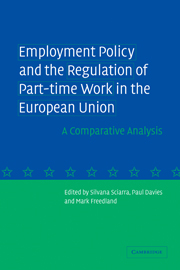A European Social Union after the Crisis
Today, many people agree that the EU lacks solidarity and needs a social dimension. This debate is not new, but until now the notion of a 'social Europe' remained vague and elusive. To make progress, we need a coherent conception of the reasons behind, and the agenda for, not a 'social Europe', but a new idea: a European Social Union. We must motivate, define, and demarcate an appropriate notion of European solidarity. We must also understand the legal and political obstacles, and how these can be tacked. In short, we need unequivocal answers to questions of why, what, and how: on that basis, we can define a clear-cut normative and institutional concept. That is the remit of this book: it provides an in-depth interdisciplinary examination of the rationale and the feasibility of a European Social Union. Outstanding scholars and top-level practitioners reflect on obstacles and solutions, from an economic, social, philosophical, legal, and political perspective.
- Reconsiders how the EU can be a successful union of flourishing welfare states in light of the lasting social and political impact of the crisis
- Combines retrospective historical analysis with up-to-date discussions of salient political issues, including the instability of the monetary union, Brexit, and the launching of a European Pillar of Social Rights by the European Commission
- Accessible features include summaries of the most cited European Court of Justice's judgments and an innovative analysis of the monetary union by a world leading academic in the field
Product details
December 2018Paperback
9781108402088
562 pages
229 × 150 × 27 mm
0.8kg
7 b/w illus. 17 tables
Available
Table of Contents
- Part I. Solidarity and Legitimacy:
- 1. The idea of a European Social Union: a normative introduction Frank Vandenbroucke
- 2. The European Social Union: a missing but necessary 'political good' Maurizio Ferrera
- 3. The solidarity argument for the European Union Helder De Schutter
- 4. Social justice in an ever more diverse Union Christian Joerges
- 5. The democratic legitimacy of EU institutions and support for social policy in Europe Marc Hooghe and Soetkin Verhaegen
- Part II. Topics in European Governance:
- 6. The impact of Eurozone governance on welfare state stability László Andor
- 7. Booms and busts and the governance of the Eurozone Paul De Grauwe and Yuemei Ji
- 8. What follows austerity? From Social Pillar to New Deal Simon Deakin
- 9. Social dialogue: why it matters? European employers' perspective Philippe De Buck and Maxime Cerutti
- 10. The European social dialogue: what is the role of employers and what are the hopes for the future? Philippe Pochet and Christophe Degryse
- 11. The European Semester Process: adaptability and latitude in support of the European Social Model Sonja Bekker
- 12. Balancing economic objectives and social considerations in the new EU Investment Agreements: commitments versus realities Rumiana Yotova
- Part III. Legal and Institutional Challenges:
- 13. How can the Viking/Laval conundrum be resolved? Balancing the economic and the social: one bed for two dreams? Sjoerd Feenstra
- 14. The basis in EU constitutional law for further social integration Geert De Baere and Kathleen Gutman
- 15. EU social competences and Member State constitutional controls: a comparative perspective of national approaches Gerhard Van Der Schyff
- 16. Social rights, the Charter and the ECHR: caveats, austerity and other disasters Alexander Kornezov
- 17. The European Court of Justice as the guardian of the rule of EU social law Koen Lenaerts and José A. Gutierréz-Fons
- Part IV. Politics:
- 18. The European Social Union and EU legislative politics Dorte Sindbjerg Martinsen
- 19. (B)Remains of the day: Brexit and EU social policy Catherine Barnard.




.jpg)
